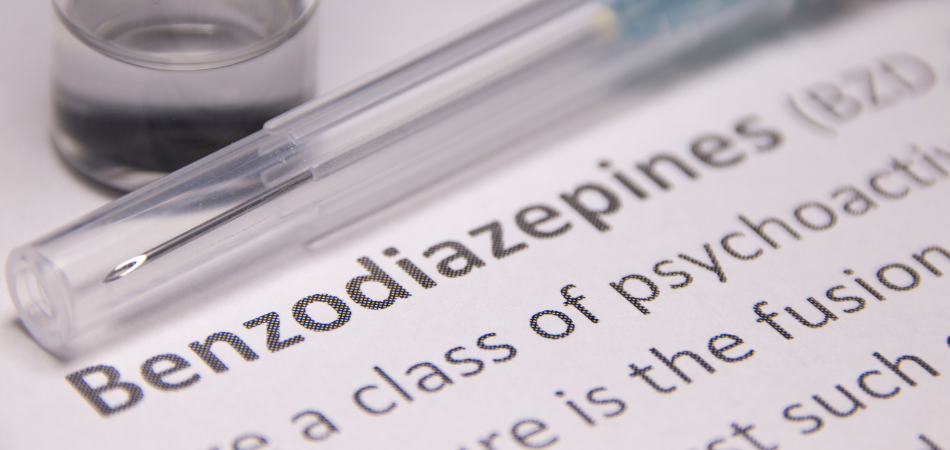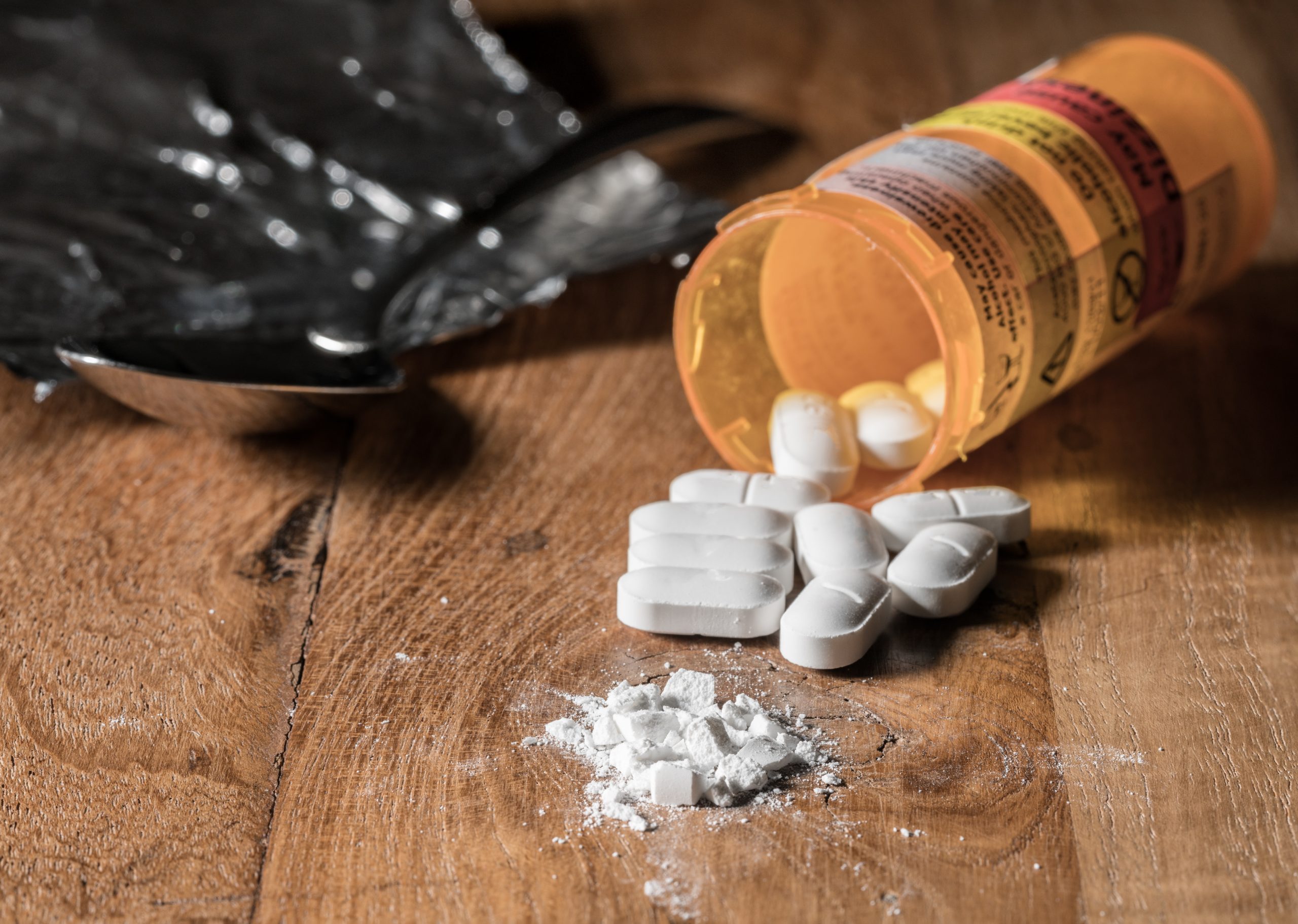Benzodiazepine addiction

Written by:

Medically Reviewed by:
This Page was last reviewed and changed on May 8th, 2024
Benzodiazepines (or ‘Benzos’ for short) are normally used to treat anxiety, insomnia and alcohol withdrawal. While they can be very effective for these conditions when used as prescribed, they are also highly addictive. If you’ve fallen victim to benzodiazepine addiction, it is important to know that you are not alone. The good news is that there is effective help available which can help you to get your life back on track. At Sanctuary Lodge, our experienced team of amphetamine addiction professionals have helped many people beat benzo addiction and are waiting for your call.

What are benzodiazepines and how are they abused?
Benzodiazepines are a type of psychoactive medication. They work by depressing the central nervous system, which has a calming effect on the brain and body. This makes them useful in treating conditions like anxiety, panic attacks and insomnia. Benzos are usually taken orally, but some can also be injected.
People who engage in benzodiazepine abuse often do so for their euphoric or sedative effects. Benzodiazepines are often abused in combination with alcohol or other drugs. This is because the combination can amplify the effects of both substances, resulting in a more intense high. However, this practice is extremely dangerous and can lead to overdose or death.
There are a number of street names used by recreational benzodiazepine users including:
- Tranks
- Downers
- Sleepers
- Normies
- Benzos
What is benzodiazepine addiction?
Benzodiazepine addiction is a serious drug addiction that can have devastating consequences. It occurs when someone compulsively uses benzodiazepines despite the negative consequences.
Benzodiazepine addiction can develop either through prescription or recreational use of the drug. Prescription benzodiazepine addiction occurs when you are prescribed benzos for a legitimate medical condition but then start to abuse them. Recreational benzodiazepine addiction is when you abuse benzos for the pleasurable effects and become physically and psychologically dependent on them.
Frequent use of benzos can result in you developing a tolerance to the drug which means you need to use more and more of them to get the same effects. This can then lead to benzodiazepine dependence, which is when the body becomes physically reliant on the drug to function without uncomfortable or unpleasant side effects. Once you are physically dependent on benzos, psychological addiction usually follows.
Common benzodiazepine addictions that we see at Sanctuary Lodge include:
Am I addicted to benzodiazepines?
Recognising benzodiazepine addiction can be very difficult. Your addiction will try to convince you that you are in control of your benzodiazepine abuse or that you need the drugs for legitimate medical reasons. If you are worried about benzodiazepine addiction, here are some questions which will help you identify signs in yourself (and others):
- Did I start taking benzos recreationally or to help with comedowns?
- Have I been taking benzos long after my original prescription has expired?
- Do I obtain benzos illegally by buying them on the web or from dealers?
- Do I use benzos to self-medicate for other problems such as anxiety, depression or chronic pain?
- Am I experiencing the negative consequences of benzodiazepine abuse?
If you have answered yes to any of these questions then there is a good chance you are addicted to benzodiazepines. At Sanctuary Lodge, we have comprehensive treatment programmes that can help you overcome your benzo addiction. Get in touch with us today for more information and to find out how to get started on your journey to recovery.
Who is most at risk of benzodiazepine addiction?
Addiction does not discriminate and anyone who takes benzos can potentially develop a benzodiazepine addiction. However, there are certain groups of people who are more at risk than others. These include:
- Those with a history of drug or alcohol abuse
- Those with mental health conditions such as anxiety and depression
- Those who have experienced trauma or abuse
- Those who are struggling with chronic pain or illness and take benzos to self-medicate
- Young people who use benzos recreationally or to help with the “come down” (feelings of nausea, anxiety and depression) that result from taking other drugs
Benzodiazepine abuse and addiction in the UK
- A 2020 Public Health England review found that a combined 2.4 million adults in England were prescribed benzodiazepines and similarly acting Z-drugs from 2017-2018, before the Covid Pandemic.
- A BMA survey also states that many people prescribed benzodiazepines had been taking the drugs for far longer than the two to four weeks recommended by the British National Formulary. In fact, the survey found that 35% had been taking benzos at least twelve times longer than recommended.
- To prevent benzo abuse and addiction, most benzos are Class C drugs in the UK which means unlawful possession or supply can lead to serious legal consequences including up to 2 years in prison.
The negative impact of benzodiazepine addiction
Benzodiazepine abuse and addiction can have a number of negative consequences on your physical and mental health. These include:
- Physical health problems including liver damage, respiratory problems and heart failure – All of these physical health conditions as well as a number of less severe ones can be caused by benzodiazepine abuse.
- Mental health problems such as anxiety, depression and psychosis – Benzodiazepines can worsen existing mental health conditions and cause new ones to develop. This can create a vicious cycle as you may then start using benzos to self-medicate for these conditions but end up making them worse.
- Problems with your work, education or personal relationships – Every aspect of your life can be affected by benzodiazepine addiction as all your energies and focus are directed towards obtaining and using the drug. You may also start lying to your friends, family and colleagues to hide your benzodiazepine abuse which can damage these relationships.
- Financial and legal problems – Illicitly obtained benzodiazepines are not cheap and the cost of buying them can quickly become unaffordable. This can lead to you breaking the law to obtain benzos or engaging in criminal activity to fund your benzodiazepine addiction.
How is benzodiazepine addiction treated?
Effective benzodiazepine addiction treatment typically involves undergoing benzodiazepine detox to break your physical dependence alongside benzodiazepine rehab which will address the psychological aspects of your addiction. Aftercare support is the final but vital step as it will provide you with ongoing guidance and support once you have returned home.
Lies your benzodiazepine addiction will try to tell you
It is important to understand that benzodiazepine addiction does not want you to get help. In fact, it will try to convince you that everything is fine and that you don’t have a problem so that it can maintain its hold over you. Some of the lies your addiction may tell you include:
“Benzodiazepines help you relax or cope with stress so you need to keep taking them.”
While this may actually be true to an extent, it is not the whole story. In fact, part of the reason you feel like this is that when you haven’t taken benzos for a while, you start to feel anxious and stressed as your body goes into withdrawal. This then reinforces the lie that you need to keep taking benzodiazepines in order to feel better. Even if you were originally prescribed benzos to help with stress or other medical conditions, if you have developed a benzodiazepine addiction, you can no longer keep taking them as they are now doing you more harm than good.
“You’re not addicted to benzos because you are still able to function as normal.”
This is another common lie that benzodiazepine addiction will try to tell you. Just because you are still able to work, study, or take care of your family does not mean that you don’t have a problem. In fact, many people with substance abuse disorders are able to function relatively normally in their day-to-day lives until the point where their addiction takes over. By the time most people seek help for benzodiazepine addiction, they have usually reached a point where their lives are starting to unravel and they can no longer hide their problem.
“You don’t need help because you can just stop taking benzos whenever you want.”
This is probably the biggest lie that benzodiazepine addiction will try to tell you. If this was the case, however, you would have stopped taking benzos as soon as they started causing problems in your life. The first and more important step in seeking help for benzodiazepine addiction is to admit you need that help. Take an honest look at yourself and it will help you see through the lies of your addiction.
Sanctuary Lodge understands how hard it is to overcome benzodiazepine addiction and we are here to help. Our team of highly experienced professionals will guide you through every step of your recovery journey. Contact us today to find out more.
Frequently asked questions
- Insomnia
- Anxiety
- Memory problems
- Confusion
- Poor judgement
- Preoccupation with obtaining benzodiazepines
- Irritability
- Drowsiness
- Lethargy
- Lack of personal care
- Weakness
- Slurred speech
- Tremors
- Headaches
- Lack of coordination
If you notice any of these signs, speak to your loved one and encourage them to seek help for their benzodiazepine addiction.
Enabling behaviours include:
- Making excuses for their behaviour
- Hiding their problem from others
- Doing things for them that they should be doing themselves
- Giving them money to feed their addiction or pay their bills or other expenses
- Protecting them from the consequences of their actions
Enabling behaviours often stem from a place of love and concern but it is important to remember that they are not helping the person with an addiction, they are only making things worse.












